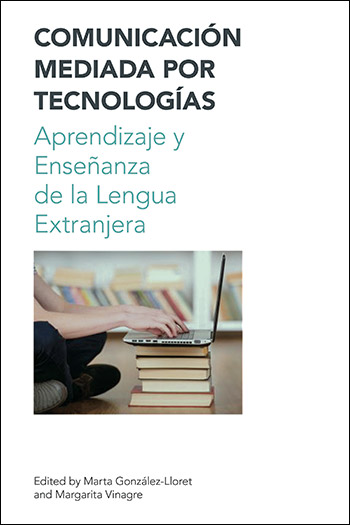
Comunicación Mediada por Tecnologías - Aprendizaje y Enseñanza de la Lengua Extranjera - Marta González-Lloret
Dinámicas de colaboración eficaz en la comunicación mediada por computador: Estudio de un caso de profesores en formación a distancia [Effective Collaborative Dynamics in Computer-Mediated Communication: A Case Study of Teacher Training in Distance Education]
Comunicación Mediada por Tecnologías - Aprendizaje y Enseñanza de la Lengua Extranjera - Marta González-Lloret
Margarita Vinagre [+]
Universidad Autónoma de Madrid
View Website
Description
The integration of virtual collaborative exchanges in the foreign language classroom is becoming a popular practice for practitioners who wish to help their students improve a foreign language but also develop other skills and competences necessary for their personal and professional lives. These exchanges, when carried out worldwide, involve engaging students in international communication and project work with partners of different cultures located in distant locations. Research has also shown the potential of this activity for developing language skills and intercultural competence (Belz 2004; Vinagre & Muñoz 2011), learner autonomy (Fuchs et al. 2012), pragmatic aspects through social relationships (Kinginger 2000) and multiple literacies (Guth & Helm 2011). However, implementing virtual collaborative exchanges can be very challenging (Vinagre 2015), since teachers need to ensure that students develop dynamics that lead to successful collaboration. In order to discover what kind of behaviours (also linguistic) facilitate virtual collaboration in experiential learning environments, in this chapter we explore the data gathered from a group of three in-service teachers who were trained online over three months. Quantitative and qualitative analyses of participation, interaction and linguistic (politeness) resources suggest that the teachers granted more importance to fostering social interaction than to task completion. This interaction was characterized by constant participation, prompt responses, regular group discussion, relevant contribution within deadlines and commitment to the task (shared responsibility). As regards the analysis of linguistic behaviours in interaction, findings suggest that the teachers used mostly positive politeness strategies. These strategies facilitated the development of close and friendly relationships as the basis for reciprocity and mutual trust, both essential aspects for successful collaboration.





